
Person detained in ‘ambush’ killing of LA sheriff’s deputy
A person has been detained in connection with the fatal shooting of a Los Angeles County sheriff’s deputy who was shot over the weekend in what authorities say was a targeted killing. Deputy Ryan Clinkunbroomer, 30, was on duty Saturday night and sitting in his patrol car at an intersection in Palmdale, California, when he was ambushed, Sheriff Robert Luna said in an earlier press conference. “He ambushed and killed — murdered — one of our deputies,” Mr Luna said, describing the suspect as a “public safety threat.” The sheriff announced on Twitter Monday morning that a person has been detained, but further details were not immediately available. A press conference is set for later today. Police said there was video that captured a vehicle described by Mr Luna as a 2006 to 2012 dark grey Toyota Corolla driving next to Clinkunbroomer’s patrol vehicle at the time of the 6pm shooting. The sheriff released photos, calling it a “vehicle of interest.” Mr Luna added that Clinkunbroomer had gotten engaged just four days before the incident. “He was just starting his life,” the sheriff said. The sheriff also released a statement on Facebook, writing that the “eight-year veteran of the LASD” was “senselessly murdered tonight.” “From everything I know about Ryan, people absolutely loved and adored him. He wasn’t just one of our Deputy Sheriffs. He was a third generation deputy. His father and grandfather served with us,” the statement read. “Service was running through his veins. He embodied the values of bravery, selflessness and was committed to justice. Our deputy was a devoted family member and a cherished community member. He was cowardly shot while working tirelessly to serve our community this evening,” the sheriff added. Read More LA sheriff’s deputy shot dead inside patrol car in targeted ‘ambush’ days after marriage proposal A Mississippi jury rules officers justified in fatal 2017 shooting after police went to wrong house Minnesota man acquitted of killing 3 people, wounding 2 others in case that turned alibi defense
2023-09-18 22:45
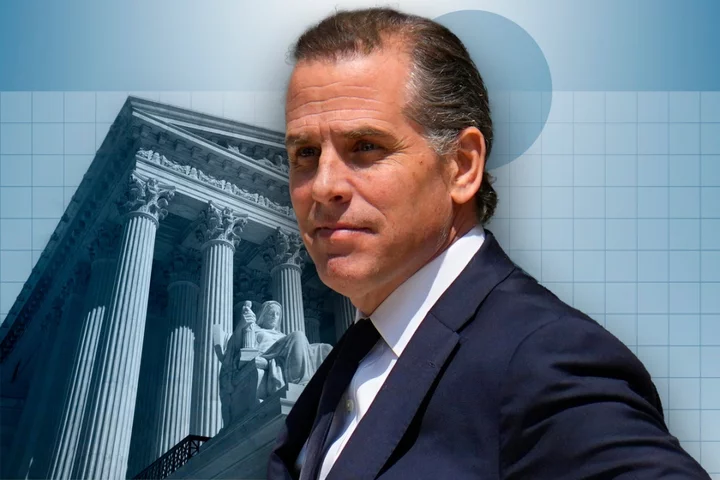
Is Hunter Biden’s gun case a test for the Second Amendment?
Following a five-year federal investigation, a grand jury has indicted President Joe Biden’s son Hunter Biden on three charges connected to a gun purchase in 2018, a time period during which the president’s son has admitted to using drugs. Federal law prohibits people who use drugs from buying firearms, but questions surrounding the constitutionality of that law could throw the case into jeopardy following a landmark US Supreme Court decision that opened a wave of litigation under the court’s expansive Second Amendment lens. That’s if the case survives the political maelstrom targeting the Biden family, with congressional Republicans eager to prosecute the president’s son and impeach his father in parallel probes separate from a US Department of Justice special counsel investigation facing GOP pressure. That partisan scrutiny comes as the leading candidate for the 2024 Republican nomination for president faces four sprawling criminal trials of his own, including charges for serious crimes allegedly committed while serving as 45th president. Republican officials and campaigns are eager to draw a false equivalence and dominate airtime with investigations surrounding the younger Biden instead. Ironically, a Supreme Court decision celebrated by Republicans last year may have set a precedent that could protect Hunter Biden from prosecution. The Gun Control Act of 1968 prohibits people who use drugs from possessing firearms, a ban that applies to people who have admitted to using illegal drugs within 12 months before buying a gun, according to the US Bureau of Alcohol, Tobacco and Firearms. Violating that provision could land an offender with a 15-year prison sentence. But the Supreme Court’s decision in New York State Rifle & Pistol Association v Bruen – decided by the court’s six conservative justices – argues that such restrictions be historically consistent with the Second Amendment. As Justice Clarence Thomas wrote, “the government must demonstrate that the regulation is consistent with the Nation’s historical tradition.” The decision created an absurdly high new burden to test the constitutionality of restrictions and other safety measures to combat the proliferation of high-powered firearms and keep them out of the hands of people who could be a danger to themselves or others in the American era marked by daily mass shootings and surging rates of gun violence, analysts and advocates have argued. President Biden has said the decision “contradicts both common sense and the Constitution.” Within a year after that decision, more than a dozen state and federal gun laws have been challenged, with 30 per cent of civil cases and nearly 4 per cent of criminal cases citing the Bruen decision in challenges that have invalidated gun control measures, according to research in Duke Law Journal. This year, federal judges in several cases have ruled that banning someone who uses drugs from owning a firearm is “inconsistent with the Nation’s historical tradition of firearm regulation.” “In short, our history and tradition may support some limits on an intoxicated person’s right to carry a weapon, but it does not justify disarming a sober citizen based exclusively on his past drug usage,” Ronald Reagan-appointed US District Judge Jerry Smith wrote for a federal appeal courts panel in August. “Nor do more generalized traditions of disarming dangerous persons support this restriction on nonviolent drug users.” Hunter Biden is charged with illegally owning a gun as a drug user, and with allegedly lying on a form when he bought the firearm. If convicted, he could face up to 25 years in prison, though it is highly unlikely he would face such a sentence. Jacob Charles, a professor at Pepperdine University’s Caruso School of Law and a constitutional law scholar focusing on the Second Amendment, said Mr Biden’s attorneys likely have a viable Second Amendment case. It might be more difficult to challenge federal law against lying on a firearms form, which is not directly tied to Second Amendment rights, “so it’s possible that an appeals court or the Supreme Court would agree with the defense on both of the questions, and say it’s unconstitutional, and since it’s unconstitutional, you also can’t be punished for lying about the other category,” Mr Charles told The Independent. Essentially: if one count is on unconstitutional grounds, there’s a chance the other counts wouldn’t stand up either. “It’s not always the case that the higher profile the defendant, the more likely you’re going to get Supreme Court review,” he said. “Sometimes it seems to happen lately. But there are other cases that are farther along in the process that are challenging this same law, that if the court really wanted to answer this question, it wouldn’t have to use the Hunter Biden vehicle to do it.” Mr Charles says the case has underscored the “disruptive effects of the Supreme Court’s decision in Bruen” and the chaotic new landscape for the nation’s myriad gun laws, which now have an apparent historical analogy regardless of the urgency for such laws in the first place. This year, the Supreme Court will hear oral arguments in a major Second Amendment test that further magnifies the chasm between the new historical test and current realities, when justices will hear a case involving a man who possessed firearms and allegedly repeatedly shot at people while subject to a domestic violence restraining order. It is also unclear what evidence prosecutors are reviewing to determine that Hunter Biden was using drugs at the time; those details are publicised in his memoir, in which he describes his struggle with abuse and his relapse in 2018, the year he bought the gun. Mr Biden’s attorney Abbe Lowell believes the case will be tossed out altogether. “The only change that has occurred between when they investigated [this alleged crime] and today is that the law changed,” he told ABC’s Good Morning America on 15 September. “But the law didn’t change in favour of the prosecution. The law changed against it.” ‘I’ve never heard of this charge. Never’ Mr Lowell and others have also questioned the timing of the case, parallel to growing threats of impeachment from far-right members of Congress against President Biden and adjacent investigations from House Republicans seeking criminal prosecutions against the president and his family. “The US Attorney’s Office has known about this for years,” Mr Lowell said. “What changed? Not the facts, not the law, but all the politics that have now come into play.” The younger Biden was prepared to plead guilty to charges stemming from the firearms purchase as well as separate tax-related misdemeanours earlier this year, though a plea agreement appeared to fall apart under scrutiny from a federal judge. Justice Department special counsel David Weiss, who as US Attorney for Delaware has been investigating Hunter Biden for roughly five years, said he would seek a grand jury indictment in the case by the end of September. Mr Weiss was appointed by Mr Trump and initially requested by congressional Republicans to lead a special counsel probe. Following the collapse of that plea deal, Mr Lowell stressed to CBS Face the Nation that Mr Weiss is “a Republican US attorney appointed by a Republican president and attorney general who had career prosecutors working this case for five years looking at every transaction” in which Hunter Biden was involved. “If anything changes from his conclusion,” he added, “the question should be asked, what infected the process that was not the facts in the law?” Outside of the constitutional scrutiny in Mr Biden’s case is the unusual stand-alone charge for lying on a form, which is typically charged in connection with a more serious underlying crime. The Brady Handgun Violence Prevention Act of 1993 – supported by then-Senator Joe Biden as the chair of the Senate Judiciary Committee – made a federal form for firearms purchases a key part of a package of anti-crime legislation. According to prosecutors, Hunter Biden lied on the form when he was asked whether he is an “an unlawful user of, or addicted to, marijuana or any depressant, stimulant, narcotic drug, or any other controlled substance.” But the chance of being prosecuted for lying on that form is exceedingly rare among the millions of background checks performed each year. Within the fiscal year that Mr Biden bought the gun and filled out that paperwork, federal prosecutors received 478 referrals for charges – and filed cases in roughly half of them. Mr Biden likely did receive so-called “special treatment” from federal prosecutors, as Republican officials have claimed. But it was in the opposite direction. His prosecution appears especially more severe than that facing a typical defendant. “Can anyone tell me how many people have been federally indicted for purchasing a gun while dealing with substance abuse issues?” asked Keisha Lance Bottoms, a former senior adviser to President Biden. “I don’t know the answer, but in my over 29 years as an attorney, I have never heard of it.” According to former Justice Department inspector general Michael Bromwich, these kinds of charges simply do not happen. “I’ve been involved in law enforcement both as a prosecutor and a defense lawyer for 40 years. I’ve never heard of this charge being brought. Never,” according to Mr Bromwich, who served as Justice Department inspector general from 1995 to 1999 and previously served as a federal prosecutor in New York. He is currently a senior counsel at Steptoe & Johnson LLP. “I think it’s extremely unusual to bring, if not unprecedented to bring, this set of charges,” he told The Independent. “These charges were brought as a result of the unrelenting political pressure brought by Republicans in Congress to bring a heavy hand down on Hunter Biden as a way of trying to get to Joe Biden, and I think the prosecutor, Mr Weiss … has succumbed to political pressure,” he said. A plea agreement like the one reached this summer “is much more in keeping with what an ordinary prosecutor would do,” according to Mr Bromwich. Should Mr Weiss seek a plea arrangement like the one prosecutors sought earlier this year, his office is “going to invite criticism from the very Republicans who will put the pressure on him right now who now feel great that there are these very serious charges against Hunter Biden,” he told The Independent. “Given all the forces at play, all the political pressure exerted from the Republican members of Congress, it’s very hard to predict where this is going to go, and how.” Read More Trump denies pushing for Biden impeachment inquiry in secret meetings with MAGA Republicans Hunter Biden indicted: What are the charges and what could happen next? Will House Republicans put up or shut up on Hunter Biden? Should domestic abusers have the right to be armed? The Supreme Court could upend protections for survivors Trump, January 6 and a conspiracy to overturn the 2020 election: The federal investigation, explained
2023-09-18 22:24
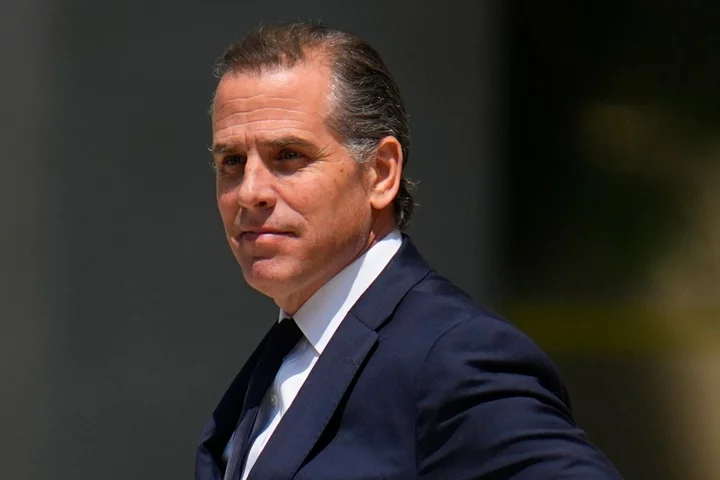
Hunter Biden sues IRS claiming they unlawfully shared his tax information
Hunter Biden has sued the IRS, arguing that they unlawfully released his private tax information. The son of the president is also alleging that the tax agency failed to safeguard his private records. The younger Mr Biden is seeking all the files linked to the disclosure of tax information, as well as $1,000 for every improper disclosure, and legal fees, in addition to other things, CNN reported. The lawsuit was filed in federal court in Washington, DC. It doesn’t name the two IRS whistleblowers as defendants, but it’s focused on information shared by the agents – Gary Shapley and Joseph Ziegler – as well as their lawyers in testimony to Congress, interviews, and public statements. “Despite clear warnings from Congress that they were prohibited from disclosing the contents of their testimony to the public in another forum, Mr. Shapley and Mr. Ziegler’s testimony only emboldened their media campaign against Mr. Biden,” the legal filing notes. “And finally, since their public testimony before the House of Representatives on July 19, 2023, the agents have become regular guests on national media outlets and have made new allegations and public statements regarding Mr. Biden’s confidential tax return information that were not previously included in their transcripts before the Committee on Ways and Means.” “The lawsuit is about the decision by IRS employees, their representatives, and others to disregard their obligations and repeatedly and intentionally publicly disclose and disseminate Mr. Biden’s protected tax return information outside the exceptions for making disclosures in the law,” Mr Biden’s legal filing states. “These agents’ putative ‘whistleblower’ status cannot and does not shield them from their wrongful conduct in making unauthorized public disclosures that are not permitted by the whistleblower process. In fact, a ‘whistleblower’ is supposed to uncover government misconduct, not the details of that employee’s opinion about the alleged wrongdoing of a private person,” the lawsuit adds. The legal filing claims that Mr Shapley and Mr Ziegler did more than verify the investigation into Mr Biden – that they shared specific claims against the 53-year-old, the amount of the deductions he had taken and how much he owed in taxes. Mr Shapley’s attorneys said in a Friday statement that Mr Biden’s lawyers have attempted to get the Department of Justice to take action against their clients for sharing information that was protected under whistleblower regulations. “Taxpayer privacy laws are written by Congress, and it gave itself authority in those laws to hear disclosures about taxpayer information,” a lawyer for Mr Shapley said in the statement on Friday. The agents shared their allegations regarding the Department of Justice’s handling of the Biden probe earlier this year. The Department of Justice said in June that they had struck a deal with Mr Biden that meant that he would plead guilty to two tax misdemeanours after he didn’t pay his taxes on time in 2017 and 2018. Mr Biden also agreed to a deal which would mean that he wouldn’t be charged with a gun possession violation, but that agreement was torn up following scrutiny by a federal judge. When the judge declined to greenlight the deal, discussions ended between the office of US Attorney David Weiss and Mr Biden’s legal team. Mr Weiss then asked for, and was granted, the status of Special Counsel. Mr Biden was indicted on three felony gun charges on Thursday and the office of Mr Weiss has stated that they could bring tax charges, with Washington, DC and California being on the list of possible jurisdictions. Read More Rambling Biden is on the ropes – will his Democratic challengers strike? Trump denies pushing for Biden impeachment inquiry in secret meetings with MAGA Republicans Trump suggests Biden impeachment is revenge for his own
2023-09-18 21:26
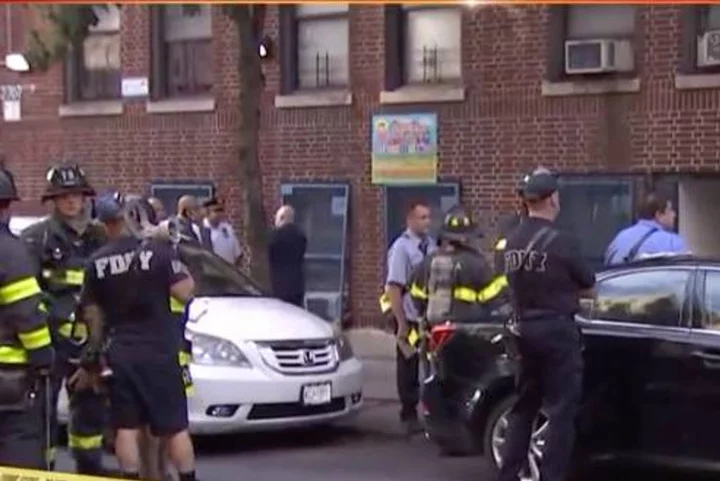
Daycare owner and neighbour charged after one-year-old child died from suspected fentanyl exposure
The owner of the daycare centre in the Bronx where a one-year-old boy died and other children fell ill from suspected fentanyl exposure have been charged with murder. Divino Nino owner Grei Mendez De Ventura, 36, and his neighbour Carlisto Acevedo Brito, 41, were arrested on Saturday night. They are each facing 11 charges, including child endangerment and criminal possession of a controlled substance, according to The New York Post. Daycare staff called 911 after finding children unresponsive after their nap on Friday. A two-year-old boy is in critical condition, while another two-year-old boy and an eight-month-old girl are both in stable condition. The one-year-old boy was pronounced dead at the scene. A fourth child, another two-year-old boy, who was picked up from the daycare earlier in the day on Friday also appeared to have been exposed to drugs. He was taken to a hospital and is in stable condition, police said. All four children seemed to have been exposed to an opioid, officials said, according to the New York Times. These suspicions, police said, arose after assessing the hospitalised children’s symptoms in combination with the discovery of a “kilo press” found at the daycare centre. “This is an item that is commonly used by drug dealers when packaging large quantities of drugs,” police explained. Last Friday concluded the one-year-old’s first week at the daycare, according to the child’s father Otoniel Feliz. Mr Feliz told the Post that he initially thought his son was sick from carbon monoxide poisoning. “It was a peaceful place, it seemed like they would take good care [of the kids]. They always keep in contact with us. Everything seemed fine,” he said. “We expected that we were taking our son to a place where he would be taken care of, not to the funeral home,” Mr Feliz said. Read More Prescription opioid shipments declined sharply even as fatal overdoses increased, new data shows One-year-old child dead and three others hospitalised after daycare incident No charges against Maine authorities for death of handcuffed man who was hit in head with flashlight
2023-09-18 01:15
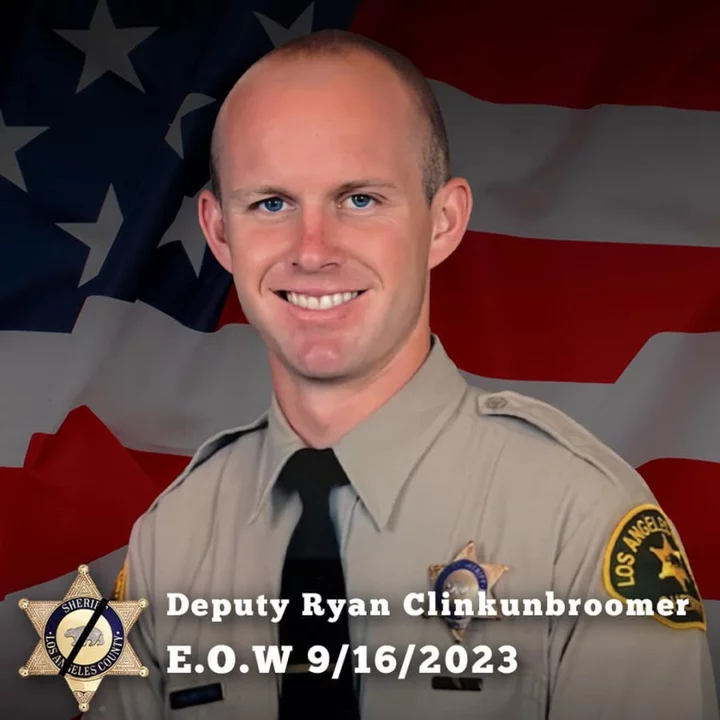
LA sheriff’s deputy shot dead inside patrol car in targeted ‘ambush’ days after marriage proposal
A Los Angeles County Sheriff’s Department deputy was shot and killed in his patrol while on duty in what officials described as a “targeted” attack. Ryan Clinkunbroomer, 30, was found shot on Saturday evening after a “good samaritan” reported an officer “unconscious” inside his vehicle outside the Palmdale sheriff’s station, Sheriff Robert Luna said during a news conference. The deputy was then transported to a local hospital and was treated for a gunshot wound but did not survive. The suspect has not been caught, the sheriff said. “He ambushed and killed — murdered — one of our deputies,” Mr Luna said, describing the suspect as a “public safety threat.” Sheriff Luna said although the investigation is in the early stages, the shooting is believed to be a “targeted act.” He speculated, “It could have been just the fact that he was representing the Los Angeles County Sheriff’s Department as one of our employees. We don’t know.” “He was just driving down the street and for no apparent reason — and we’re still looking into the specific reasons – somebody decided to shoot and murder him. I’m assuming at this point, because he was in uniform. “Our deputy was a devoted family member and a cherished community member. He was cowardly shot while working tirelessly to serve our community this evening.” Mr Luna added that Clinkunbroomer had gotten engaged just four days before the incident. “He was just starting his life,” the sheriff said. The sheriff also released a statement on Facebook, writing that the “eight-year veteran of the LASD” was “senselessly murdered tonight.” “From everything I know about Ryan, people absolutely loved and adored him. He wasn’t just one of our Deputy Sheriffs. He was a third generation deputy. His father and grandfather served with us,” the statement read. “Service was running through his veins. He embodied the values of bravery, selflessness and was committed to justice. Our deputy was a devoted family member and a cherished community member. He was cowardly shot while working tirelessly to serve our community this evening,” the sheriff added. Read More Man charged with attempted murder after boy, 14, stabbed in chest Mother who killed three young children before attempting to end her life is indicted on murder charges Alex Murdaugh trial latest: Prosecution finds ‘significant disputes’ in convicted murderer’s jury tampering claims
2023-09-17 22:23
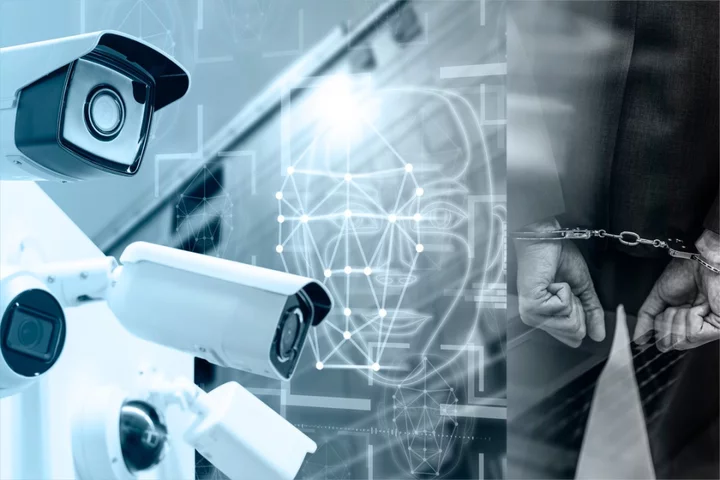
Wrongly arrested because of facial recognition: Why new police tech risks serious miscarriages of justice
On 16 February, Porcha Woodruff was helping her children get ready for school when six Detroit police officers arrived at her door. They told her she was under arrest for a January carjacking and robbery. She was so shocked she wondered for a moment if she was being pranked. She was eight months into a difficult pregnancy and partway through a nursing school programme. She did little else besides study and take care of her kids. She certainly wasn’t out stealing cars at gunpoint, she said. “I’m like, ‘What,?’ I opened my door so he could see my stomach. ‘I’m eight months pregnant. You can see two vehicles in the driveway. Why would I carjack?’” she told The Independent. “‘You’ve gotta be wrong. You can’t have the right person.’” Her children cried as she asked officers if the suspect was pregnant and insisted they had mistakenly arrested her. She was put in handcuffs and taken to jail, where she had panic attacks and early contractions. She later learned police identified her as a suspect after running security footage through the department’s facial recognition software, relying on a 2015 mugshot from a past traffic arrest into a photo lineup where the carjacking victim singled out Ms Woodruff as her assailant. The Detroit Police Department eventually dropped the case, but the arrest has deeply shaken Ms Woodruff. “What happened to the questioning? What happened to me speaking to someone?” she said. “What happened to any of the initial steps that I thought were available to a person who was accused of doing something?” The case underscores the growing risks of civil rights violations as police departments and law enforcement agencies across the country increasingly adopt facial-recognition and other mass surveillance technologies, often used as an unreliable shortcut around methodical human police work. Criminal justice advocates and the people targeted by this burgeoning police tech argue these programmes are riddled with the same biases and opaque or nonexistent oversight measures plaguing policing at large. The early results, at least, haven’t been encouraging. At least six people around the US have been falsely arrested using facial ID technology. All of them are Black. These misfires haven’t stopped the technology from proliferating across the country. At least half of federal law enforcement agencies with officers and a quarter of state and local agencies are using it. “We have no idea how often facial recognition is getting it wrong,” Albert Fox Cahn, executive director of the Surveillance Technology Oversight Project (STOP), told The Independent. “When you have facial recognition being used thousands of times, without any accountability for mistakes, it’s inviting injustice,” he added. Nowhere has that injustice been more pronounced than Detroit, a city where Black people have long experienced documented over-policing from law enforcement. Three of the six people mistakenly arrested by facial recognition technology have been in the Motor City, according to the ACLU. This status quo is why Ms Woodruff is suing DPD, claiming among other things that the agency has engaged in “a pattern of racial discrimination” against her and other Black residents “by using facial recognition technology practices proven to misidentify Black citizens at a higher rate than others in violation of the equal protection guaranteed by” the Michigan civil rights statutes. “I definitely believe that situation would’ve gone differently had it been another race, honestly, just my opinion. There was no remorse shown to me and I was pregnant. I pleaded,” she told The Independent. “Being mistaken for something as serious as that crime – carjacking and armed robbery – that could’ve put me in a whole different type of lifestyle,” she added. “I was in school for nursing. Felons cannot become nurses. I could’ve ended up in jail. That could have altered my life tremendously.” The Independent has requested comment from DPD. After Ms Woodruff filed her suit, Detroit police chief James White said in a press conference in August “poor investigative work” led to the false arrest, not facial recognition technology. He claimed that department software gave detectives numerous possible suspects and was only meant to be a “launch” point for further investigation. “What this is, is very, very poor investigative work that led to a number of inappropriate decisions being made along the lines of the investigation, and that’s something this team is committed to not only correcting, having accountability, having transparency with this community, and in building policy immediately to ensure regardless of the tool being used, this never happens,” Mr White said. He added that officers won’t be allowed to use images sourced by facial recognition in lineups, and warrants based on facial ID matches must be reviewed by two captains before being carried out. ‘The lead and the conclusion’ Some aren’t convinced these changes will prevent the excesses of what they see as a fundamentally flawed technology. “The technology is flawed. It’s inaccurate,” Philip Mayor, senior staff attorney at the ACLU of Michigan, told The Independent. “Police repeatedly assured us that it’s being used only as an investigative lead, but what we see here in Detroit time and time again is it is both being used as the lead and the conclusion.” Studies suggest that facial-recognition algorithms, which have been used to capture suspects in high-profile cases like those connected to January 6, also fail to accurately identify Black people and women, driving up inequalities in arrests, because image-training datasets often lack full diversity. However, according to Mr Mayor, police departments make things even worse by failing to do basic training and common-sense investigative work on top of facial recognition tools. He represents Robert Williams, a Detroit man who was mistakenly arrested for a 2020 theft from a high-end Detroit boutique. A security contractor employed by the store worked with the city and state police and flagged Mr Williams’ name using facial recognition tools. How police came to trust that Williams was the right man reveals the sloppiness of how facial ID tech is used in practice, according to the ACLU attorney. After the theft, police searched a database containing both past photos of Mr Williams and his present-day driver’s license. ‘It picks out 486 people who are the most likely perpetrators; not a single one of them is his current driver’s license, even though his current driver’s license is in the database that was searched,’’ Mr Mayor said. “That seems like an obvious exculpatory fact, the kind of thing that would lead you to say if you were actually thinking, this isn’t the right guy.” When these dubious matches are then used to build a line-up, questionable police work attains the gloss of near-fact, and witnesses choose from a group of people who may have no credible tie to a crime that took place but still look something like the person who did. “This is not me,” Mr Williams told police during his investigation, according to The New York Times. “You think all Black men look alike?” The father of two, after asking a local police voluntarily stop using facial recognition technology, sued the DPD in 2021. “This technology is dangerous when it doesn’t work, which is what the cases in Detroit are about. It’s even more dangerous when it does work. It can be used to systematically surveillance when we come and go from every one of the places that are important in our private lives,” the ACLU attorney said. “I don’t think there’s any reason to believe that departments elsewhere right now are not making the same mistakes.” ‘A force multiplier for police racism’ Detroit isn’t the only place grappling with the impacts – and errors – of this technology. In Louisiana, the use of facial recognition technology led to a wrongful arrest of a Georgia man for a string of purse thefts. A man in Baltimore spent nine days in jail after police incorrectly identified him as a match to a suspect who assaulted a bus driver. The Baltimore Police Department ran nearly 800 facial recognition searches last year. Those cases and others have added to a growing list of misidentified suspects in a new era of racial profiling dragnets fuelled by tech that is rapidly outpacing police and lawmakers’ ability to fix it. Facial recognition software often is “a force multiplier for police racism,” worsening racial disparities and amplifying existing biases, according to Mr Cahn. It can spur a vicious cycle. Black and brown people are already arrested at disproportionate rates. These arrests mean they are more likely to enter a database of faces being analyzed and used for police investigations. Then, error-prone facial recognition technology is used to comb these databases, often failing to identify or distinguish between Black and brown people, particularly Black women. “So the algorithms are biased, but that’s just the start, not the end of the injustice,” Mr Cahn says. Such technologies, advocates warn, are embedded in wider mass surveillance programmes that often lack robust public oversight. In New York City, law enforcement agencies relied on facial recognition technology in at least 22,000 cases between 2016 and 2019, according to Amnesty International. New York City’s Police Department spent nearly $3bn growing its surveillance operations and adding new technology between 2007 and 2019, including roughly $400m for the Domain Awareness System, built in partnership with Microsoft to collect footage from tens of thousands of cameras throughout the city, according to an analysis from STOP and the Legal Aid Society. The NYPD has failed to comply with public disclosure requirements about what those contracts – from facial recognition software to drones and license plate readers – actually include, according to the report. Until 2020, that money was listed under “special expenses” in the police budget until passage of the Public Oversight of Surveillance Technology Act. The following year, more than $277m in budget items were listed under that special expenses programme, the report found. “We’ve seen just concerted pushback from police departments against the sort of oversight that every other type of government agency has because they don’t want to be held accountable,” according to Mr Cahn. “If we treated surveillance technology vendors the way we treated other technology vendors, it would be like Theranos – police would be arresting some of these vendors for fraud rather than giving them government contracts,” he added. “But there is no accountability.” On 7 August, 2020, New York City Police Department officers in riot gear launched a six-hour siege outside Derrick Ingram’s Hell’s Kitchen apartment. Mr Ingram – a racial justice organiser who is embroiled in a federal lawsuit against the NYPD – was surrounded by more than 50 officers after he allegedly shouted into an officer’s ear at a protest earlier that summer. Police insisted they had a warrant on assault charges, but couldn’t produce one when Mr Ingram asked them to, according to his suit. The whole encounter, in which the NYPD deployed snipers, drones, helicopters, and police dogs, began with facial recognition technology. “To say that I was terrified is an understatement – I was traumatized, I still am,” Mr Ingram later testified. “I fear deep down in my core that if I opened my door to those officers, my life would be swiftly taken.” To identify Mr Ingram as a potential suspect, NYPD relied on facial recognition software “as a limited investigative tool, comparing a still image from a surveillance video to a pool of lawfully possessed arrest photos,” according to a police statement, adding that “no one has ever been arrested solely on the basis of a computer match.” The software pulls from a massive internal database of mugshots to generate possible matches, according to the department. Civil rights groups and lawmakers criticized the department’s use of facial recognition – initially hailed as a tool to crack down on violence offenders – for being deployed to suppress dissent, and triggering a potentially lethal police encounter at Mr Ingram’s home. As for Ms Woodruff in Detroit, she hopes her experience can show the dangers of relying too heavily on facial recognition technology. “It may be a good tool to use, but you have to do the investigative part of using that, too,” she said. “It’s just like everything else. You have your pieces that you put together to complete a puzzle.” Her life would’ve been a whole lot different, she said, if “someone would’ve just taken the time to say, ‘OK, stop, we’re going to check this out, let me make a phone call.’” Read More Detroit police changing facial-recognition policy after pregnant woman says she was wrongly charged White House science adviser calls for more safeguards against artificial intelligence risks How a Drake concert put NYPD’s ‘arsenal’ of surveillance technologies under the spotlight
2023-09-17 22:16
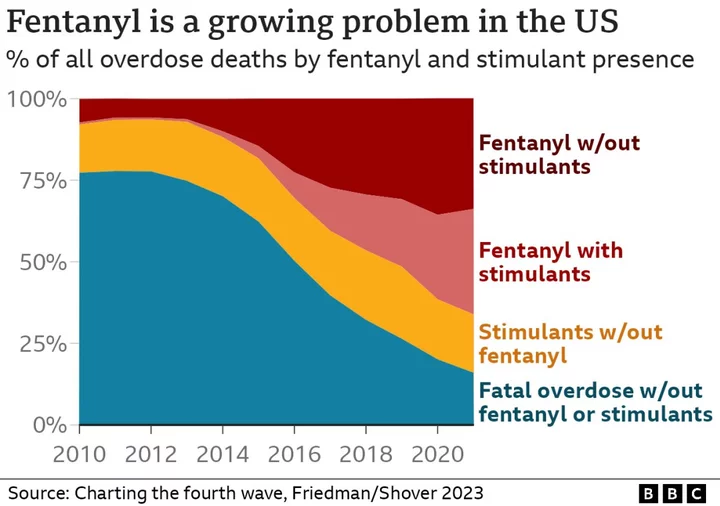
How the fentanyl crisis' fourth wave has hit every corner of the US
The epidemic's staggering scale and its infiltration of communities across the nation is laid bare in a new study.
2023-09-17 07:16
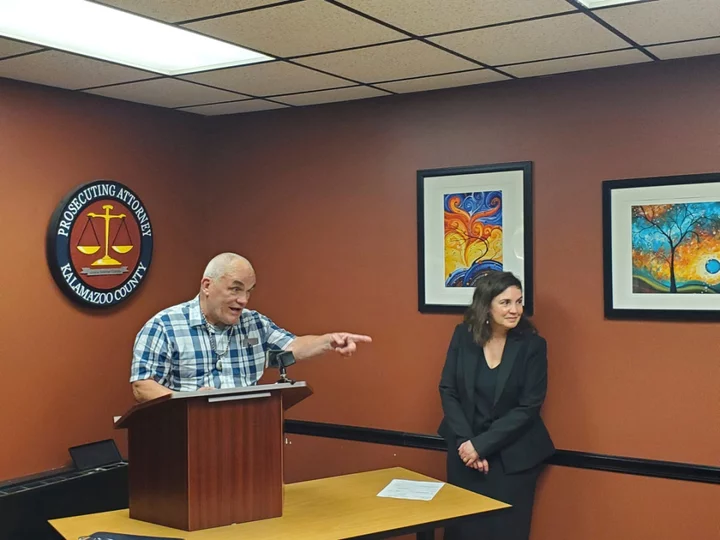
Michigan to pay $1m to man wrongfully convicted of killing two hunters
The state of Michigan has agreed to pay $1.03 million to a man who spent nearly 21 years in prison for the deaths of two hunters before the convictions were thrown out in February. Jeff Titus, 71, qualified for compensation under the state's wrongful conviction law, which pays $50,000 for every year behind bars. Records show Court of Claims Judge James Redford signed off on the deal on Aug. 23. “Our goal is to hold accountable those who are responsible for the harm done to Mr. Titus. The state's acknowledgment of his wrongful conviction is a start,” attorney Wolfgang Mueller said Friday. Titus had long declared his innocence in the fatal shootings of Doug Estes and Jim Bennett near his Kalamazoo County land in 1990. He was released from a life sentence earlier this year when authorities acknowledged that Titus’ trial lawyer in 2002 was never given a police file with details about another suspect. Thomas Dillon was an Ohio serial killer whose five victims between 1989 and 1992 were hunting, fishing or jogging. There is no dispute that the failure to produce the file violated Titus’ constitutional rights. In June, Kalamazoo County prosecutor Jeff Getting said Titus would not face another trial. “I don’t know who ultimately murdered Mr. Estes and Mr. Bennett,” said Getting, who wasn't involved in the 2002 trial. There was no physical evidence against Titus, who was portrayed at trial as a hothead who didn’t like trespassers. The Innocence Clinic at University of Michigan law school worked to exonerate him. Dillon died in prison in 2011. ___ Follow Ed White at http://twitter.com/edwritez
2023-09-16 22:53
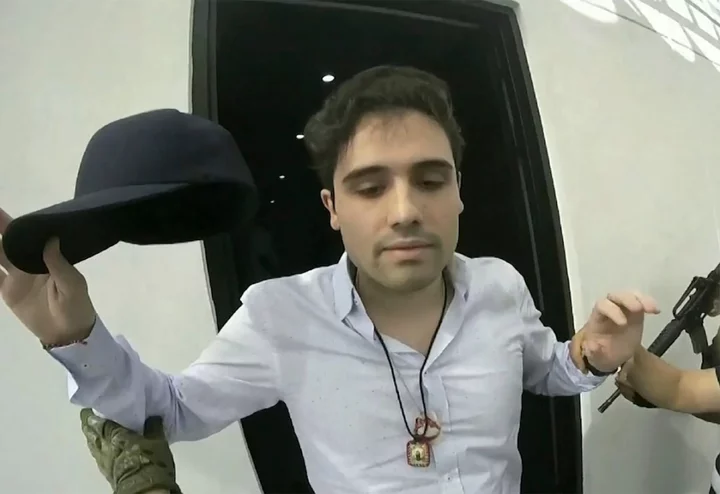
Mexico extradites son of ‘El Chapo’ Ovidio Guzmán López to US
Mexico extradited Ovidio Guzmán López, a son of former Sinaloa cartel leader Joaquin “El Chapo” Guzmán, to the United States on Friday to face drug trafficking charges, US attorney general Merrick Garland said in a statement. “This action is the most recent step in the Justice Department’s effort to attack every aspect of the cartel’s operations,” Mr Garland said. The Mexican government did not immediately respond to requests for comment. Mexican security forces captured Mr Guzmán López, alias “the Mouse,” in January in Culiacan, capital of Sinaloa state, the cartel’s namesake. Three years earlier, the government had tried to capture him, but aborted the operation after his cartel allies set off a wave of violence in Culiacan. January’s arrest set off similar violence that killed 30 people in Culiacan, including 10 military personnel. The army used Black Hawk helicopter gunships against the cartel’s truck-mounted .50-caliber machine guns. Cartel gunmen hit two military aircraft forcing them to land and sent gunmen to the city’s airport where military and civilian aircraft were hit by gunfire. The capture came just days before US president Joe Biden visited Mexico for bilateral talks followed by the North American Leaders’ Summit. On Friday, Mr Garland recognized the law enforcement and military members who had given their lives in the US and Mexico. "The Justice Department will continue to hold accountable those responsible for fueling the opioid epidemic that has devastated too many communities across the country.” In April, US prosecutors unsealed sprawling indictments against Mr Guzmán and his brothers, known collectively as the “Chapitos.” They laid out in detail how following their father’s extradition and eventual life sentence in the US, the brothers steered the cartel increasingly into synthetic drugs like methamphetamine and the powerful synthetic opioid fentanyl. The indictment unsealed in Manhattan said their goal was to produce huge quantities of fentanyl and sell it at the lowest price. Fentanyl is so cheap to make that the cartel reaps immense profits even wholesaling the drug at 50 cents per pill, prosecutors said. The brothers denied the allegations in a letter. The Chapitos became known for grotesque violence that appeared to surpass any notions of restraint shown by earlier generations of cartel leaders. Fentanyl has become a top priority in the bilateral security relationship. But Mexican president Andrés Manuel López Obrador has denied assertions by the US government and his own military about fentanyl production in Mexico, instead describing the country as a transit point for precursors coming from China and bound for the US. López Obrador blames a deterioration of family values in the US for the high levels of drug addiction in that country. An estimated 109,680 overdose deaths occurred last year in the United States, according to numbers from the Centers for Disease Control and Prevention. About 75,000 of those were linked to fentanyl and other synthetic opioids. Inexpensive fentanyl is increasingly cut into other drugs, often without the buyers’ knowledge. Read More El Chapo’s son, three Sinaloa cartel leaders and two Mexican firms sanctioned for bringing fentanyl into US Case details Sinaloa cartel's fentanyl-fueled evolution Mexican capo's arrest a gesture to US, not signal of change Big week for US-Mexico ties going into North American summit Drug lord, trafficker, killer of wedding singers: How the ‘New Mouse’ followed in the bloody footsteps of his father El Chapo
2023-09-16 12:48
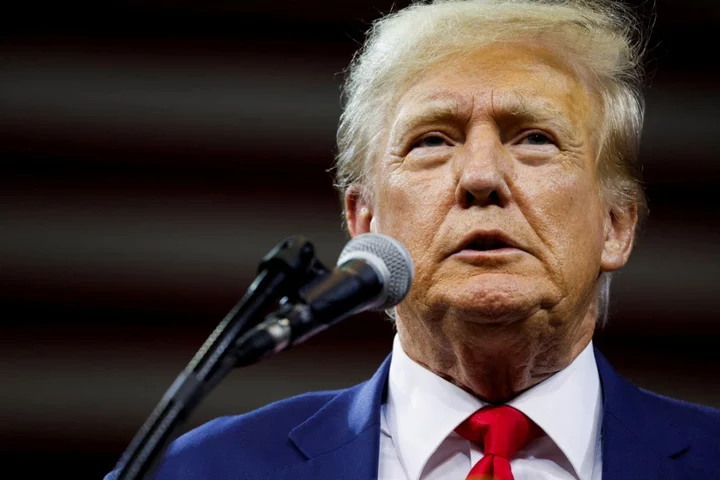
Prosecutors ask judge to restrict Trump’s ‘inflammatory’ attacks surrounding election subversion case
Federal prosecutors are asking the judge overseeing a case targeting Donald Trump’s alleged efforts to subvert the outcome of the 2020 presidential election to help stop his wave of “inflammatory” attacks. Following a grand jury’s indictment in the case, the former president has “repeatedly and widely disseminated public statements” attacking Washington DC residents as well as members of the court, prosecutors and prospective witnesses, according to a filing in US District Court on 15 September. His statements threaten “to undermine the integrity of these proceedings and prejudice the jury pool,” prosecutors warned. Prosecutors with US Department of Justice special counsel Jack Smith have asked US District Court Judge Tanya Chutkan to take “immediate” steps to ensure a fair trial and an impartial jury, including drafting a “narrowly tailored order” that restricts “certain prejudicial extrajudicial statements” from Mr Trump. An unsparing assessment of Mr Trump’s remarks charts the former president’s ongoing and baseless narrative casting doubt on the integrity and veracity of US elections, his remarks targeting his perceived political opponents, including family members of the judges and prosecutors overseeing the criminal cases against him, and how his bullhorn dog-whistle statements are heard among his supporters who elevate those threats. “The defendant has an established practice of issuing inflammatory public statements targeted at individuals or institutions that present an obstacle or challenge to him,” including bogus statements surrounding US elections that have “engendered widespread mistrust in the administration of the election, and the individuals whom he targeted were subject to threats and harassment,” according to prosecutors. Mr Trump knows that “when he publicly attacks individuals and institutions, he inspires others to perpetrate threats and harassment against his targets,” according to the filing, and that he continues those attacks “precisely because he knows that in doing so, he is able to roil the public and marshal and prompt his supporters.” The filing includes several posts from Mr Trump’s Truth Social account, which the former president has used as a bully pulpit to his supporters to direct the narratives surrounding the criminal cases against him while casting himself as a victim of political prosecution. Mr Trump has “posted publicly about individuals whom he has reason to believe will be witnesses in this trial,” and his “relentless public posts marshaling anger and mistrust in the justice system, the Court, and prosecutors have already influenced the public,” according to prosecutors. The special counsel’s office has also faced “multiple threats,” according to the filing. In a separate filing on Friday, prosecutors have warned a judge that people connected to the case have faced “threats and harassment” fuelled by the former president’s “inflammatory public statements.” Judge Chutkan has allowed prosecutors to seal those names, according to the nine-page order on 15 September. Prosecutors asked to court to withhold the names and other identifying information of “certain individuals” targeted by Mr Trump with “inflammatory” statements, as well as excerpts from witness interview transcripts that describe the alleged threats and harassment they received, according to the filing. “The government seeks to establish that Defendant has publicly criticized his perceived adversaries and is aware that this criticism has led to their harassment,” the judge wrote. This is a developing story Read More Trump’s Twitter DMs handed over as special counsel asks for narrow gag order in Jan 6 case – latest
2023-09-16 05:46
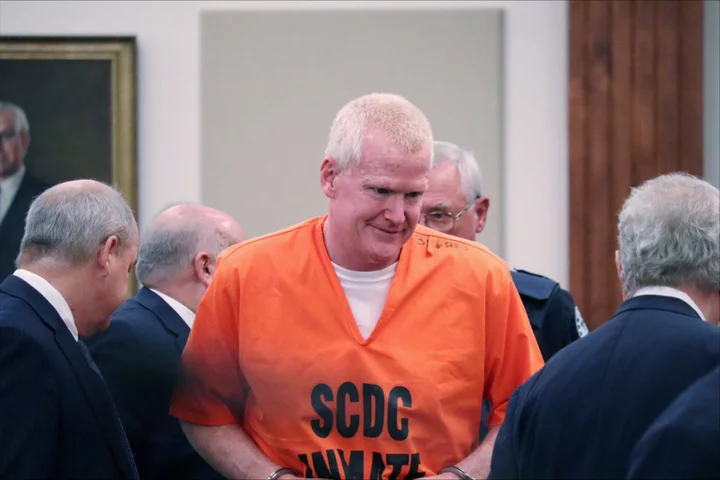
Alex Murdaugh’s jury tampering allegations have ‘significant’ factual disputes, prosecutors say
Prosecutors have responded to Alex Murdaugh’s allegations of jury tampering at his double murder trial stating that South Carolina investigators have found “significant factual disputes” with the claims. The South Carolina Attorney General’s Office filed the response on Friday moving to dismiss Murdaugh’s request for a new trial due to “procedural defect”. The filing, which came just under deadline on Friday afternoon, is the state’s first response to the allegations made in the defence’s bombshell motion last week. Murdaugh demanded a new trial after his legal team accused Colleton County Clerk of Court Rebecca Hill of pressuring jurors to return a guilty verdict. Prosecutors also said that they want Murdaugh’s defence team to show that they did not know about the alleged jury tampering during the murder trial. Ms Hill has not commented publicly on the allegations. The response from the state on Friday comes a day after a smiling Murdaugh appeared publicly for the first time since he was sentenced to life in prison for the murders of his wife Maggie and son Paul, this time to face a string of financial fraud charges. At the status hearing in Beaufort County, Judge Clifton Newman set the trial date for 27 November. The case will focus on the millions of dollars he stole from the family of his dead housekeeper Gloria Satterfield, part of the 101 state charges in response to his alleged financial crimes. Two former friends and alleged co-conspirators in the case also appeared in court on Thursday, former Palmetto State Bank CEO Russell Laffitte and former attorney Cory Fleming, the latter sentenced to 10 years in prison. Read More Smiling Alex Murdaugh appears in court in shackles as trial date set in financial fraud case Alex Murdaugh’s demand for new trial over jury tampering claims awaiting response as deadline looms – live
2023-09-16 04:17
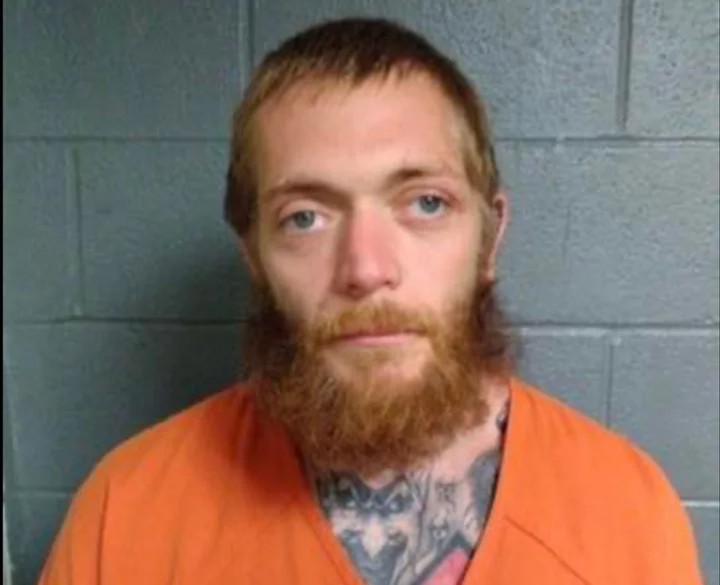
Man with swastika tattoo accused of taping razor blade to church handrail
A suspect identified by a “large red swastika tattoo” on his chest was arrested for allegedly taping a razor blade to a handrail at a Salvation Army Church in Pennsylvania, police say. Benjamin Burton Brower Jr, 30, attached a three-inch blade to a handrail on steps leading to the front door of the church in Altoona, Blair County, on Sunday afternoon, the Altoona Police Department said in a statement. “APD officers were dispatched to the Salvation Army Church, 1813 6th Ave, after Brower was seen on surveillance cameras taping razor blades to the hand railing at the church entrance,” the Altoona police said. “Brower was shirtless during the incident and identified by a large red swastika tattoo on his chest.” According to a probable cause affidavit obtained by WTAJ, Mr Brower was seen walking onto church grounds at around 3pm on Sunday wearing red shorts and an open vest exposing his swastika tattoo with a green camouflage backpack. He then retrieved several items from the bag and taped the blade, with the sharp side up, to a metal handrail. The church holds public services at 10.30am, Sunday school at 11.30am and provides free meals to the community at a 4.30pm soup kitchen. The razor was removed by the church pastor at around 5.15pm, and no one was injured. Swastikas are widely recognised as symbols of hate, antisemitism and white supremacy. Mr Brower was arraigned on charges of aggravated assault, institutional vandalism at a place of worship, recklessly endangering another person, and other offences on Wednesday, police said. He is being held at Blair County Jail on $10,000 bail. Read More Parents of Philadelphia teacher found dead with 20 stab wounds lose battle to overturn suicide ruling Escaped murderer Danelo Cavalcante told officials he planned to carjack someone and flee US Mother arrested for abandoning toddler in stroller on side of LA street
2023-09-16 03:58
